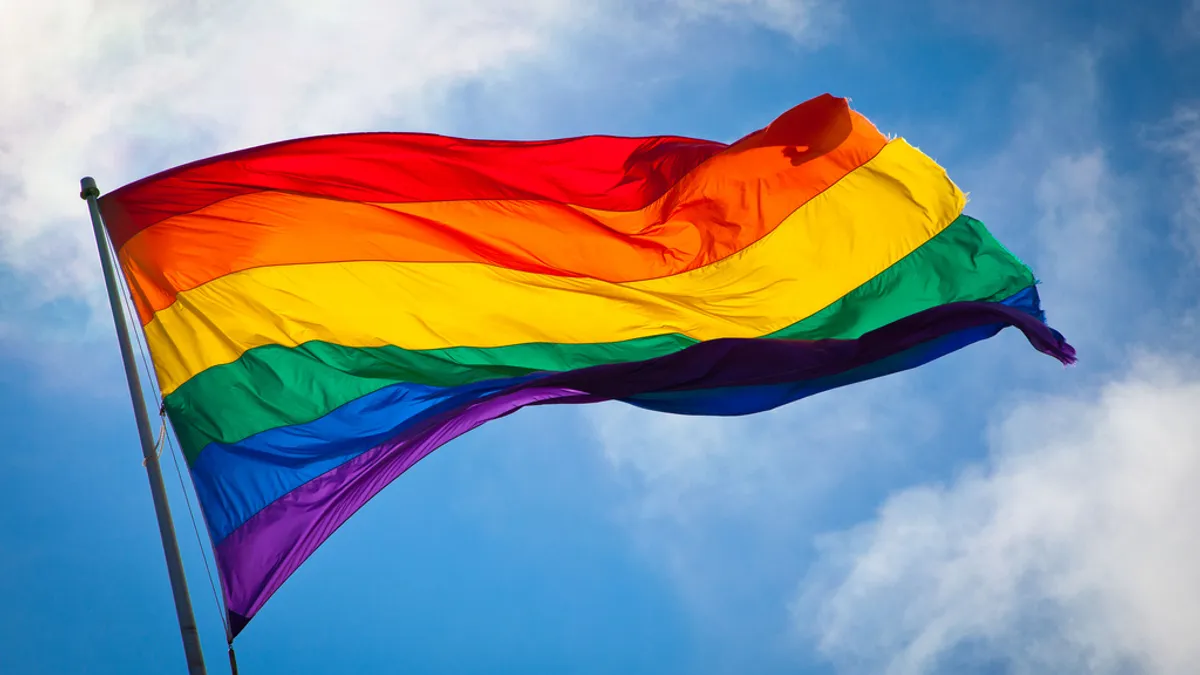Dive Brief:
- A curriculum supplement released by the New York City Department of Education this spring, titled "Hidden Voices: LGBTQ+ Stories in United States History," focuses on expanding equity by including more LGBTQ voices in history lessons, Chalkbeat reports.
- Included in the resource is information on significant eras in U.S. history, such as the "Lavender Scare" and "Pansy Craze," viewed in the context of their impact on the LGBTQ community, as well as the stories of 20 individuals who pushed gender and sexuality boundaries — like Frank Kameny, the first person to sue the federal government for LGBTQ discrimination. The document notes that the list isn't exhaustive.
- The New York City Department of Education spent two years collaborating on the supplement's development with the Museum of the City of New York, New York Public Library, New-York Historical Society and National Archives.
Dive Insight:
“When I was in college, if a teacher had talked about someone being gay in the past it would have been dramatic because nobody was talking about gay people at all,” Daniel Hurewitz, associate professor of history at Hunter College and lead historian on the project, told Chalkbeat.
While support for LGBTQ-inclusive curricula has grown in recent years, districts still face hurdles in its adoption and implementation. Five states — New Jersey, California, Illinois, Oregon and Colorado — have mandates for public schools to teach LGBTQ-inclusive curriculum, varying from sex education to the roles and contributions of LGBTQ figures throughout history, but experts say there's little in place to enforce those requirements, and pushback persists in some cases from parents and community members as well as educators themselves.
Research, however, has shown that on top of helping LGBTQ students feel represented, inclusive curricula can also serve to expand social-emotional learning experiences for all students, reducing stigma and bullying. In a June 2020 study from the University of Connecticut’s Rudd Center for Food Policy and Obesity, almost three-quarters of LGBTQ students surveyed reported experiencing bullying. The research also found that the presence of a gay-straight alliance in a school helped by fostering a more inclusive environment around issues ranging from body size to identity.














